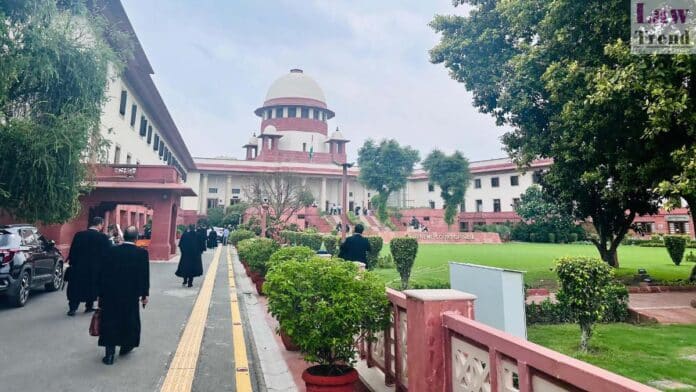In a significant development, the Hon’ble Supreme Court of India, comprising Hon’ble Mr. Justice Vikram Nath and Hon’ble Mr. Justice Prasanna B. Varale, was pleased to issue notice on 20.12.2024 in the Special Leave Petition along with the connected Intervention Application challenging the order dated 13.12.2024 passed by the High Court of Punjab & Haryana in CWP No. 33810 of 2024.
The matter raises grave concerns about the systematic breakdown of constitutional machinery in the Municipal Corporation elections of Patiala, where only 31 out of 60 candidates could file nominations despite multiple attempts. The Intervenors, including a BJP Youth President, have presented compelling evidence of state machinery being deployed to prevent opposition candidates from participating in the electoral process, including instances of illegal detention, physical obstruction at the Returning Officer’s office, and deliberate tearing of nomination papers in police presence.
The Supreme Court’s intervention becomes crucial as the case transcends routine electoral disputes, representing an unprecedented constitutional crisis where the very foundation of grassroots democracy stands threatened. The pattern mirrors recent Panchayat elections where over 3,000 seats witnessed unopposed victories, raising serious concerns about the systematic subversion of democratic processes through state machinery.
The legal arguments advanced before the Hon’ble Court drew strength from landmark precedents, particularly N.P. Ponnuswami v. Returning Officer (1952 SCR 218), where this Hon’ble Court recognized the necessity of pre-election intervention when the electoral process itself stands vitiated. The submissions emphasized that while Article 243-ZG contemplates election petitions as the remedy for electoral disputes, such provisions cannot oust jurisdiction where the very right to participate in elections is systematically denied. Reference was made to Election Commission of India v. Ashok Kumar (2000) 8 SCC 216, where this Court emphasized that threats to free and fair elections warrant immediate judicial intervention. The arguments further relied on Mohinder Singh Gill v. Chief Election Commissioner (1978) 1 SCC 405, establishing that when the violation goes to the root of the matter and no alternative efficacious remedy exists, constitutional courts must intervene to protect democratic principles.
The matter assumes particular significance as it challenges the traditional doctrine that election matters should be exclusively addressed through election petitions. The intervenors argue that when the very right to contest is being systematically denied through coordinated state action, it warrants immediate intervention by constitutional courts to preserve the essence of democratic governance enshrined in Part IX of the Constitution. The submissions highlighted that the present case falls within the exceptional category where pre-election intervention becomes not just permissible but necessary to protect the constitutional scheme of local self-governance.
The submissions before the Court emphasized that the High Court’s approach of relegating such serious constitutional violations to mere administrative representations fundamentally misapprehends the nature of the crisis. When the very authorities tasked with ensuring free and fair elections become instruments of obstruction, the remedy of representation becomes illusory. The case demands recognition of the distinction between routine electoral disputes and systematic subversion of democratic processes through state machinery.
Arguing Counsel for Petitioners in SLP: Senior Advocate Vivek Tankha
Arguing Counsel for Intervenors: A. Velan, Advocate on Record




